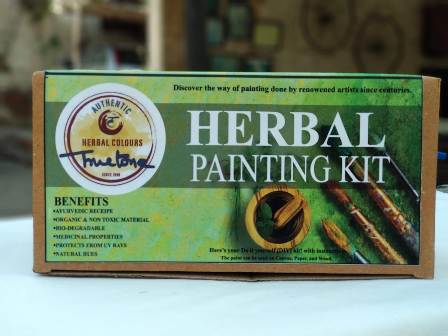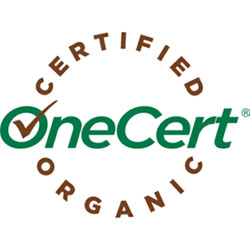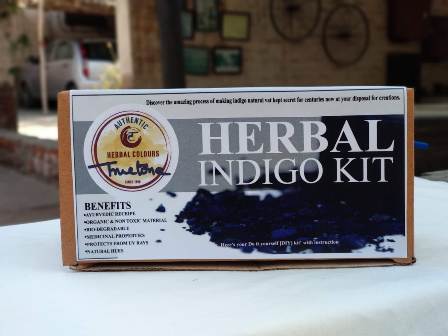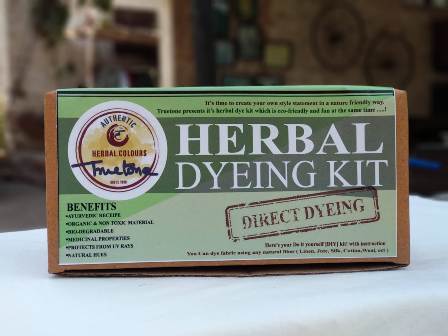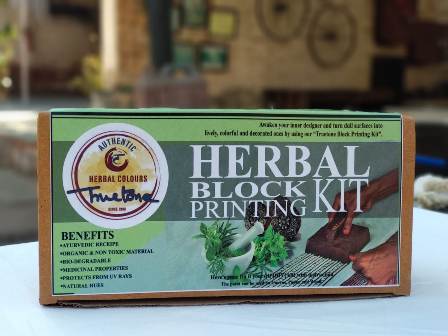Exploring Organic Dyes Suppliers in India
In recent years, there has been a growing demand for sustainable and eco-friendly alternatives in various industries, including textiles and fashion. Organic dyes, derived from natural sources such as plants, minerals, and insects, have gained prominence as a preferred choice for coloring textiles due to their sustainability, biodegradability, and reduced environmental impact. In India, a hub of traditional dyeing techniques and expertise, several suppliers, wholesalers, and dealers specialize in offering organic dyes, catering to the needs of environmentally conscious businesses and consumers. In this guide, we'll delve into the world of organic dyes suppliers in India, exploring their sourcing practices, product offerings, and the benefits of choosing organic dyes.
The Importance of Organic Dyes
Sustainable Sourcing:
Organic dyes are derived from renewable and natural sources, minimizing the reliance on synthetic chemicals and fossil fuels. By opting for organic dyes, businesses reduce their carbon footprint and contribute to a more sustainable and eco-friendly supply chain.
Reduced Environmental Impact:
Conventional textile dyeing processes often involve the use of synthetic dyes and chemicals that can pollute waterways, harm aquatic life, and contribute to air and soil pollution. Organic dyes, on the other hand, are biodegradable and non-toxic, posing minimal harm to the environment and ecosystems.
Connecting with Organic Dyes Suppliers
1. Traditional Artisan Communities:
India is home to numerous artisan communities and traditional dyers who specialize in natural dyeing techniques passed down through generations. These artisanal suppliers offer a unique selection of organic dyes sourced from local plants, herbs, and minerals, providing businesses with authentic and ethically produced coloring solutions.
2. Sustainable Textile Organizations:
Explore sustainable textile organizations and cooperatives in India that promote the use of organic dyes and natural dyeing techniques. These organizations collaborate with small-scale producers and artisans to create sustainable livelihoods and preserve traditional crafts while offering high-quality organic dye products to the market.
3. Online Platforms and Marketplaces:
Online platforms and marketplaces dedicated to sustainable and eco-friendly products provide a convenient way to connect with organic dyes suppliers in India. These platforms feature a diverse range of organic dye products, including powders, extracts, and pre-dyed fabrics, catering to the diverse needs of businesses and consumers.
Benefits of Choosing Organic Dyes
-
Environmental Sustainability: Organic dyes are derived from renewable and natural sources, reducing the reliance on synthetic chemicals and fossil fuels. Their production and use contribute to a more sustainable and eco-friendly textile industry, minimizing environmental pollution and resource depletion.
-
Biodegradability and Non-Toxicity: Organic dyes are biodegradable and non-toxic, making them safe for use and disposal. Unlike synthetic dyes, which can contain harmful chemicals and heavy metals, organic dyes pose minimal risk to human health and the environment, promoting safer working conditions and cleaner ecosystems.
-
Vibrant Colors and Unique Effects: Organic dyes offer a wide range of vibrant colors and unique effects, ranging from earthy tones to bright hues. Their natural composition and variability create one-of-a-kind color variations and patterns, adding character and authenticity to textiles and garments.
Popular Types of Organic Dyes
-
Plant-Based Dyes: Derived from various parts of plants such as leaves, roots, bark, and flowers, plant-based dyes offer a rich and diverse color palette. Common plant sources for organic dyes include indigo, madder root, turmeric, and onion skins.
-
Mineral-Based Dyes: Mineral-based dyes utilize naturally occurring minerals and earth pigments to create colors ranging from earthy tones to metallic hues. Minerals such as iron oxide, ochre, and copper sulfate are commonly used in organic dyeing processes.
-
Insect-Based Dyes: Insect-based dyes, also known as cochineal dyes, are derived from insects such as cochineal bugs and lac insects. These dyes produce vibrant red and purple colors and have been used historically in textile dyeing.
Certifications for Organic Dyes
-
Global Organic Textile Standard (GOTS): GOTS certification ensures that the entire textile supply chain, including dyeing and printing processes, meets strict environmental and social criteria. Organic dyes used in GOTS-certified products must comply with specified standards for sustainability and ecological impact.
-
OEKO-TEX Standard 100: OEKO-TEX Standard 100 certifies that textile products are free from harmful substances and chemicals. While it does not specifically address organic dyes, it ensures that the final product is safe for human health and the environment.
Embracing Organic Dyes for Sustainable Textiles
Organic dyes offer a sustainable and eco-friendly alternative to conventional synthetic dyes, providing businesses and consumers with a choice that aligns with their values and principles. By connecting with trusted organic dyes suppliers in India, businesses can access high-quality, ethically produced coloring solutions that promote environmental stewardship, social responsibility, and innovation in the textile industry. Embrace the benefits of organic dyes and contribute to a more sustainable and vibrant future for textile production and beyond.


